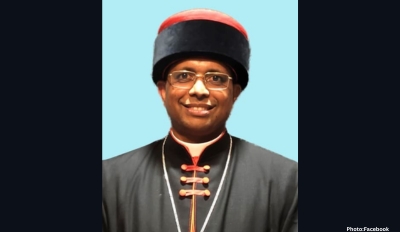Kartik Chandran, an Indian American environmental engineer was among the 24 talented individuals honored as prestigious MacArthur Fellows for 2015, it was announced Sept. 28.
Chandran, 41, an associate professor in the department of earth and environmental engineering at Columbia University in New York, was one of the Fellows recognized by the foundation for his innovative work.
“The fellowship bestows great honor and a greater responsibility towards overcoming the global challenges that we as a society face today,” the engineer told the media. The MacArthur Foundation fellowship program awards unrestricted fellowships to talented individuals who have shown extraordinary originality and dedication in their creative pursuits, and a marked capacity for self-direction.
Fellows are selected through a multi-phase nomination process and are evaluated by an independent selection committee comprised of about a dozen leaders in the arts, sciences and humanities professions, as well as for-profit and nonprofit communities.
Typically, 20 to 30 fellows are selected each year.
Chandran, who received a B.S. from the Indian Institute of Technology at Roorkee and a doctorate from the University of Connecticut, has focused on integrating microbial ecology, molecular biology, and engineering to transform wastewater from a troublesome pollutant to a valuable resource.
He approaches wastewater treatment with the goal of producing useful resources such as fertilizers, chemicals, and energy sources, in addition to clean water, in a way that takes into account the climate, energy and nutrient challenges faced today.
“I expect to leverage and build upon the fellowship award to specifically address the interlinked challenges relating to clean water, sanitation, energy and nutrients, among others,” he said.
The Indian American has determined an optimal combination of microbes to remove nitrogen from waste while minimizing the release of nitrous oxide, a potent greenhouse gas.
In addition, while using ammonia-oxidizing bacteria, he has enabled the transformation of bio-generated methane gas into methanol, a chemical that is both easily transported and widely useful.
His solutions are imaginative and locally appropriate, according to the MacArthur description of his work, citing a project he did in rural Ghana re-engineering source-separation toilets to provide sanitation and recover nutrients to use in agriculture.
Chandran’s bio on the fellowship program page goes on to say he is “demonstrating the hidden value of wastewater, conserving vital resources and protecting public health.”

